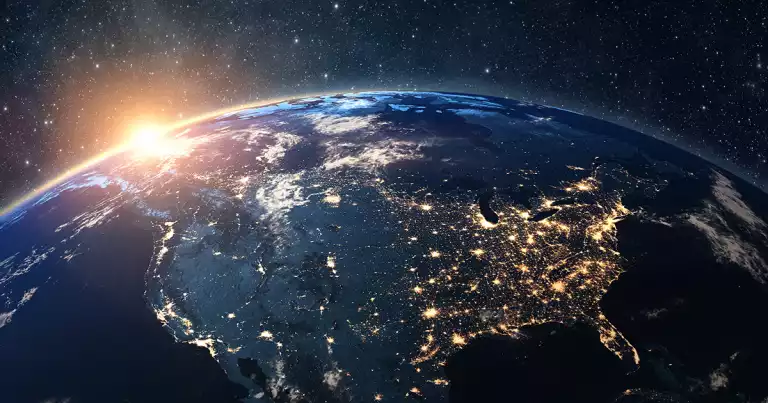What Does the UN Mean by Its “Code Red” Climate Warning?
3 minute read
Click play to listen to the What Does the UN Mean by Its “Code Red” Climate Warning article.
Global warming and climate change have been discussed for decades. And in recent years, we’ve seen the impact of our changing planet in the large number of severe weather events that have hit all over the world.
Recently, the United Nations (UN) labeled the status of the climate as a “code red for humanity.” While there are obvious signs of climate change’s impact, what does “code red” mean in this context, and what can we do about it as individuals?
Code Red Climate Warning
A Changing Planet
Many of the luxuries we enjoy in modern society—rapid transportation, the easy availability of goods, widespread land use—come with a cost. Human activity increases the amount of greenhouse gases in the atmosphere, which raises the global temperature and changes the planet in several ways.
The earth will keep on spinning through these changes, but the reason they matter so much for society is that the world is becoming less and less habitable for humans, especially those of lower economic status. Extreme weather, lack of access to freshwater, poor air quality, and reduced land masses will all impact large populations in our lifetimes and beyond.
The UN says that to preserve a climate that’s livable for humans, we must reduce greenhouse gas emissions to net zero by 2050. “Net zero” would mean that the amount of greenhouse gases we are producing is equal to the amount being recaptured or absorbed.
Here are five real, noticeable ways that climate change will be felt all over the world:
- Warming Waters
Impact: rising sea levels, loss of coastal cities, freshwater shortages - Agriculture Pressures
Impact: food scarcity, less crop diversity can strain soils, certain crops will be viable only in specific areas of the world - High Temperatures
Impact: higher average temperature, more wildfires, more pests and diseases - Extreme Weather
Impact: loss of homes and infrastructure, power outages, higher insurance premiums and cost of living in some areas - Added Health Risks
Impact: outsize impact on lower economic classes, housing and food insecurity, decreased life expectancy
Acting Now for the Future
The “code red” designation is a justified warning, but all hope is not lost. There are changes we can make globally that will prevent us from experiencing the most extreme impacts of climate change down the road.
There is some debate about the level of responsibility placed on individuals to offset climate change. Various reports estimate that around 100 corporations are responsible for about 70% of all greenhouse gas emissions, making individual actions seem minimal in comparison.
While it’s true that the largest impact will come from decisions made by governments and corporations, individuals can embrace the role they have in the equation.
As part of their “Act Now” program, the UN has picked out 10 actions that individuals can take to both contribute to lower greenhouse gas emissions, and spread awareness of the importance of this issue:
- Save Energy at Home
- Drive Less
- Eat More Plant-Based Foods
- Fly Less
- Cut Food Waste
- Reduce, Reuse, Repair, Recycle
- Get Wind or Solar Energy
- Switch to an Electric Vehicle
- Choose Eco-friendly Products
- Speak Up
Voting for Change
Let’s focus on the final action, “Speak Up.” Politicians and corporations, alike, will not make widespread changes on their own. But they will listen and start to change the status quo when there is massive pressure from voters and consumers to do so.
Vote for politicians who recognize the urgency of the climate crisis, and use your dollars to support businesses who act sustainably and support climate initiatives.
Because air quality will be greatly impacted by climate change, AprilAire supports the American Lung Association’s “Stand Up For Clean Air” initiative, which aims to address the “public health crisis of climate change.” This program offers information on personal changes you can make to improve your air quality, and resources for contacting officials who make decisions on air quality standards and climate change strategies.
